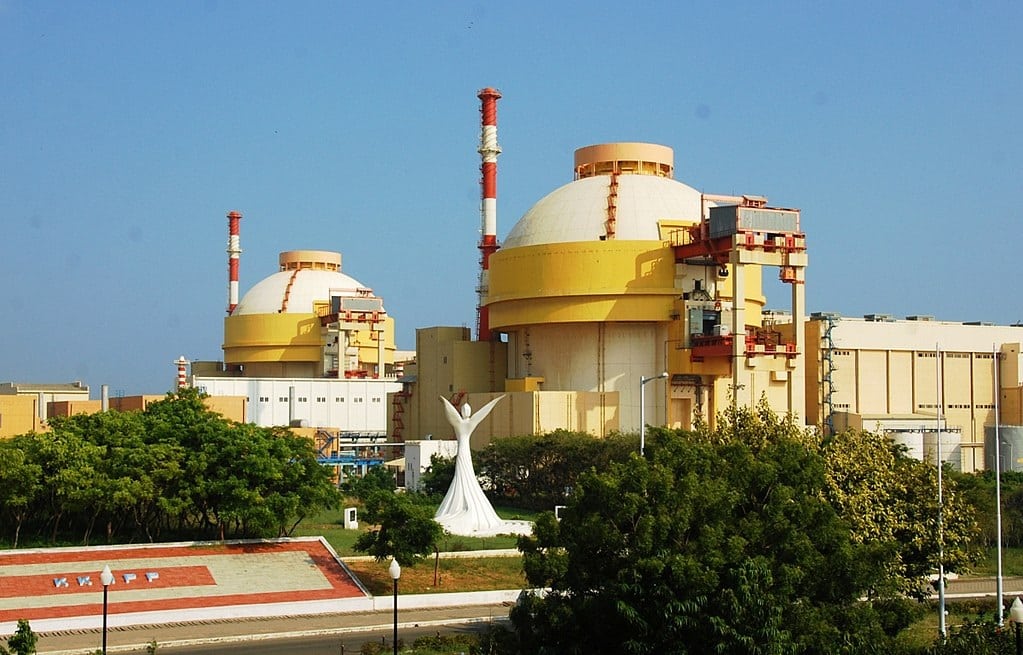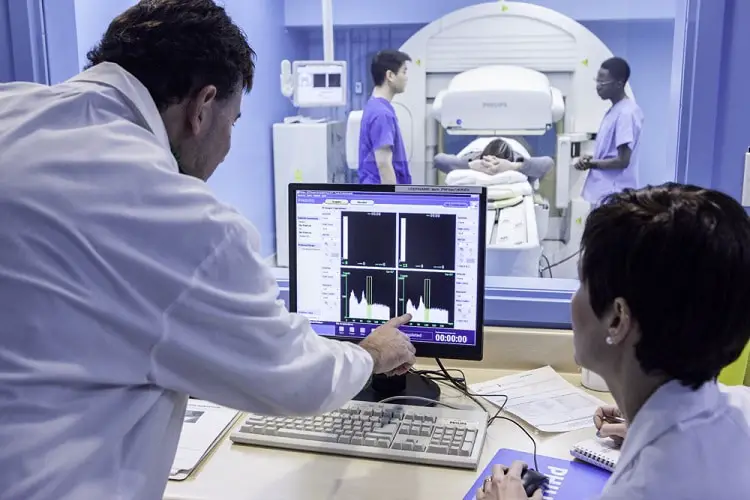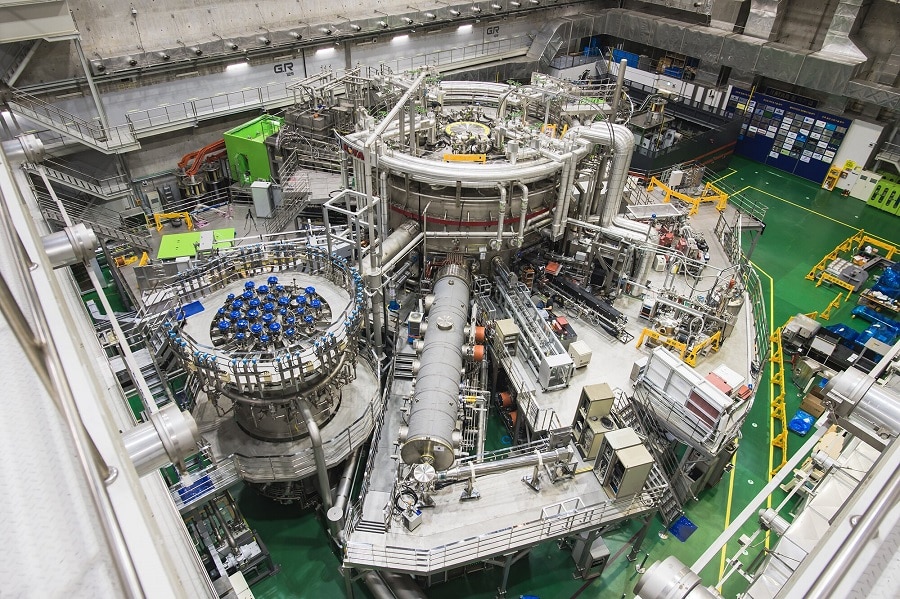Wanna know what are the advantages of nuclear energy? If yes, then you are at the right place at the very right time. But, before going ahead, let me give you a short and crisp review about the fact that what is nuclear energy anyway…!!!
By definition, nuclear energy is the energy that we harness from the core of an atom. An atom contains a large amount of energy, especially within its core. Not to mention, if we neglect particle physics, an atom consists of mainly three elements.
These are protons, neutrons, and electrons. Moreover, the combination of proton and neutron is called the nucleus of the atom around which the electrons rotate. In fact, more than 99.94% of an atom’s mass is in the nucleus. This is where nuclear energy is found.
Why my top 6 nuclear energy advantages are better than yours?
There are so many good things about nuclear energy. If you think you can’t relate to the top 6 advantages of nuclear power. Well, here is your chance to think again. These are the benefits of using nuclear energy that I will be discussing with you today. Let’s dive right in…!!!
- Cheaper than other sources of electricity generation
- Reliable source of electricity generation
- Nuclear Energy is Clean
- Wide range of non-explosive and non-electric applications
- Creates Job Opportunities
- Nuclear Fusion: The Holy Grail of Continous Energy
Cheaper than other sources of electricity generation

No wonder the initial installation cost of building a nuclear power plant is quite high. However, the operational cost is the cheapest among all the other sources of electricity generation such as coal or oil-powered plants.
As per the scientific calculations, the heaviest elements have the highest energy density. And, not to mention, nuclear fuel such as Uranium is the heaviest among all. Therefore, the smallest quantity of nuclear fuel can easily provide an enormous amount of energy compared to other oil or coal-powered plants.
As a consequence, they only need to refuel every 1.5 to 2 years leaving it out of the international price war. I mean we all know how the price fluctuates of traditional fossil fuels such as coal, petrol, or natural gas in the international market.
Editor’s Choice: Top 6 Nuclear Energy Facts in SIX Minutes
Realiable Source of Electricity Generation

As once US President Donald Trump said, “when the wind stops blowing, that’s the end of your electric.” Sadly, that is not the case with the use of Nuclear energy. In other words, whatever happens, Nuclear Power plants will run 24 hours a day, 7 days a week, 365 days a year without any interruptions or maintenance. Ever wondered why?
Well, because the fuel we use to produce nuclear energy is abundantly available. Ohh, let me correct something. Nuclear power plants do need maintenance, but once in every 1.5 to 2 years. This is what makes the use of nuclear energy the most reliable source for electricity generation.
In addition, as per the data available on the website of the World Nuclear Institute, Nuclear power plants are the most efficient source of electricity generation. By far, it can easily operate 24/7 at a 93 percent average capacity factor. Capacity factor is the ratio of the actual amount of electricity generated by a plant compared to the maximum amount that it could potentially generate.
Editor’s Choice:
Nuclear Energy is Clean

One of the most important advantages of nuclear energy is that it is the cleanest source of electricity generation. In fact, this is by far the biggest benefit over traditional sources of energy. On one hand, the burning of fossil fuels contributes to electric power across the globe.
On the other hand, they are also responsible for releasing tons of carbon dioxide into the atmosphere which in turn heavily contributes to large-scale global warming and climate change. According to the recent research paper published on Advancing Earth and Space Science, Glacial melting due to global warming is likely the cause of a shift in the movement of the poles that occurred in the 1990s.
Therefore, in order to stop or maybe slow the pace of global warming, Use of nuclear energy can play a vital role. In addition, nuclear energy is also the second-largest low-carbon power source, of course, after the hydroelectric power plant.
As per the recent World Nuclear Association’s report on Comparison of Lifecycle Greenhouse Gas Emissions of Various Electricity Generation Sources, a Nuclear power plant emits 28 tonnes of CO2 per gigawatt-hour (GWh) of energy produced. Similarly, for solar power, it is 85 tonnes per GWh, for natural gas, it is 500 tonnes per GWh, and so on.
Editor’s Choice:
Wide Range of Non-Explosive and Non-Electric Applications

If you ask any common man what could be the uses of nuclear energy? He would simply say we can make a nuclear bomb, or else we can generate electricity using nuclear power, Yeah, that’s it. But, what about other uses? I mean apart from making nuclear bombs and generating electricity, what are the other applications of nuclear energy?
The other benefits of nuclear power range from agricultural to industrial applications, from medical applications to space exploration. Okay, let me explain how…!!! In agriculture, we use nuclear radiation as a pest controller simply to prevent pests and bugs from further reproducing.
We use nuclear radiation to kill cancer tumors without damaging the healthy living cells. Likewise, we use radioactive materials for industrial applications such as for testing the moisture content of soil during road construction. The list can go on.
Editor’s Choice: Advantages of Geothermal Energy – Top 6 (Latest)
Creates Job Opportunities

One of the most important prospects of the Nuclear industry is that it creates an enormous amount of job opportunities. In fact, Nuclear power plants create more jobs than any other source of electricity generation. In other words, there is the availability of jobs in almost each and every sector.
Some of the most notable sectors include nuclear engineers, scientists, carpenters, welders, civil engineers, chemical engineers, Accountants, Electricians, Mechanical engineers, Health Physicists, Entrepreneurs, Radiation Protection Specialists, and the list can go on.
As per the data available on the website of the Nuclear Energy Institute, each nuclear power plant employs 500 to 800 workers. Building a nuclear power reactor employs up to 7,000 workers at peak construction. Nuclear worker salaries are 50 percent higher on average than those of other electricity generation sources.
A typical nuclear power plant creates $40 million in labor income each year. For every 100 nuclear power plant jobs, 66 more jobs are created in the local community. And, the list can go on…!!!
Nuclear Fusion: The Holy Grail of Continous Energy

The very last and most important in my list of top 6 advantages of nuclear energy is the Nuclear Fusion based Tokmak. Not to mention, according to PHYS.ORG, on November 24, 2020, The Korea Superconducting Tokamak Advanced Research (KSTAR), a superconducting nuclear fusion device set the new record as it succeeded in maintaining the high-temperature plasma for 20 seconds with an ion temperature over 100 million degrees (Celsius).
According to KSTAR (also known as the Korean artificial sun), their final goal is to succeed in a continuous operation for 300 seconds with an ion temperature higher than 100 million degrees by 2025. Frankly speaking, in my personal view, it’s just a pipe dream. Obviously, you would be thinking why I said it’s just a PIPE DREAM. Okay, let me explain.
Well, currently, they are able to sustain a nuclear fusion reactor with an ion temperature over 100 million degrees (Celsius) just for 20seconds. On the other hand, they are planning to cross over the operation for more than 300 seconds i.e around 5 minutes. However, in order to produce electricity, the fusion reactor has to work continuously just like the way Sun works in our solar system work. Therefore, until or unless, they are not able to work it out properly, I am not afraid to call it merely a Pipe Dream.
Editor’s Choice: Top 6 Advantages of Solar Energy in SIX Minutes
Some other Benefits of Nuclear Energy:
Apart from the above-mentioned benefits or advantages, I am also mentioning some of a few here.
- Improves National Security
- Reduces greenhouse gases
- Improves air quality
- Nation Building
- Reusable Fuel
- Provides stability in Energy Sector, etc.
Frequently Asked Questions
1. What are the different types of nuclear energy?
ANS: There are fundamentally two types of processes to generate energy from the nucleus of an atom. These are Nuclear Fission and Nuclear Fusion.
2. What is the difference between nuclear fission and nuclear fusion?
ANS: The primary difference between nuclear fission and fusion is that nuclear fission is a process during which a heavier nucleus of an atom (say plutonium) breaks into two lighter nuclei. On the other hand, nuclear fusion is a process during which lighter elements (say hydrogen) fuse together to form heavier elements.
3. Is nuclear energy renewable or nonrenewable?
ANS: Nuclear energy comes under the category of non-renewable energy resources. However, some group of nuclear scientists argues that nuclear energy itself is a renewable one. But the material used in the nuclear power plant is not.
4. Is nuclear energy good for the environment?
ANS: Of course, the use of nuclear energy is good for the environment as long as we are using it in a peaceful manner.
That’s it for this post. If you like this article, share it if you like, like it if you share it. You can also find us on Mix, Twitter, Pinterest, and Facebook. Hey man, If you have come this far, do give us feedback in the comment section. It would make my day. You can also make a donation. Your donations will help us to run our website and serve you BETTER. Cheers!!!
You might also like:
- Top 6 Sources of Mechanical Energy You Should Know
- Top 6 Disadvantages of Solar Energy (Explained)
- Different Forms of Energy with Their Examples – Top 6 (All New)
- Examples of Non-renewable Resources (Uses, Pros & Cons)